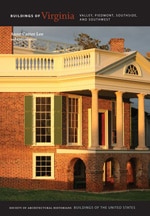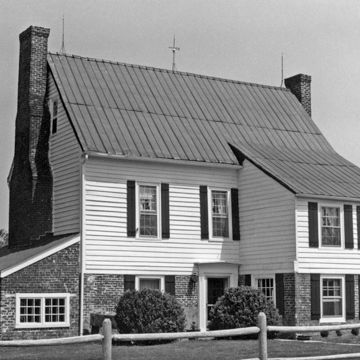This tavern situated on the Prince Edward county line is a one-story frame building on a high brick basement. A center-passage, single-pile structure, the tavern now has its main entrance at the basement level. Although the interiors are Federal, the entrance has a Greek Revival frontispiece apparently added in the c. 1840 remodeling. Among the various additions is a lean-to ell flanking the entrance.
Across the road, the brick store is a rare surviving Greek Revival commercial structure in a rural area. The upper story of the pedimented gable-end building had a front sales-room offering everything from groceries and medicine to farm implements and furniture, and the post office was in the rear room. The ground floor was used for storage and to stable the horses of visitors to the tavern. Stairs originally led up to the double entrance doors on the upper story. Flanking the entrance doors are large twelve-over-twelve display windows with lintels featuring cornerblocks and fretwork. The high degree of architectural sophistication and finish displayed in Burke's Store is rarely seen in rural Virginia's commercial establishments.
The store and the tavern were built by Samuel Dabney Burke, a member of Virginia's House of Delegates, a militia colonel, and entrepreneur for whom nearby Burkeville was named. It was to Burke's Tavern in 1865 that Thomas A. Smythe, the last Union general to be killed in the Civil War, was brought to die. Later, the death knell rang for the store itself when the railroad passed a mile southeast from it. Burke closed the store, moved into what became Burkeville, and built the now-demolished Burke's Hotel.









